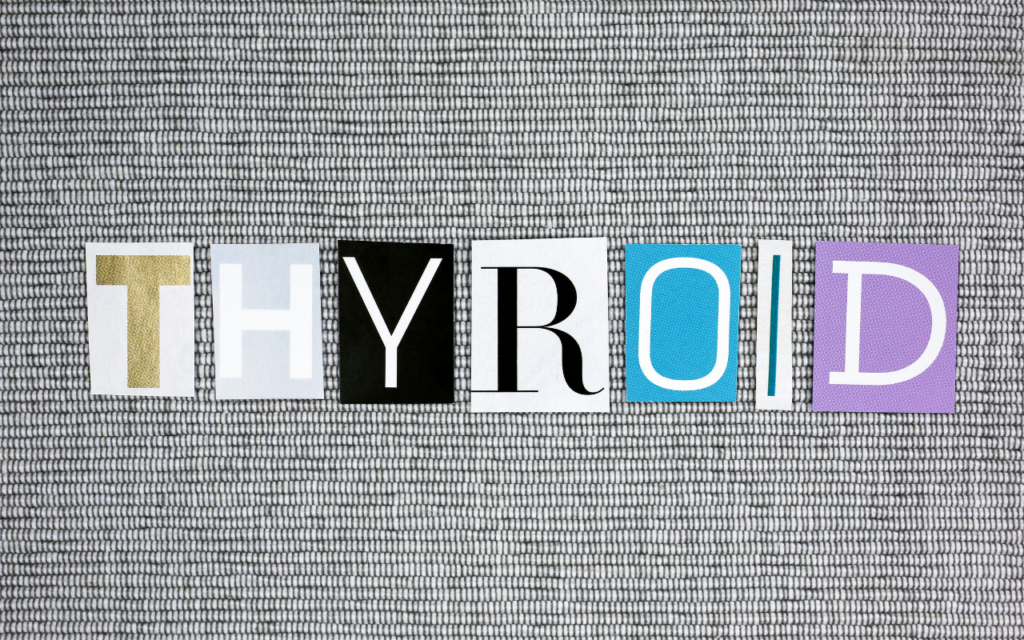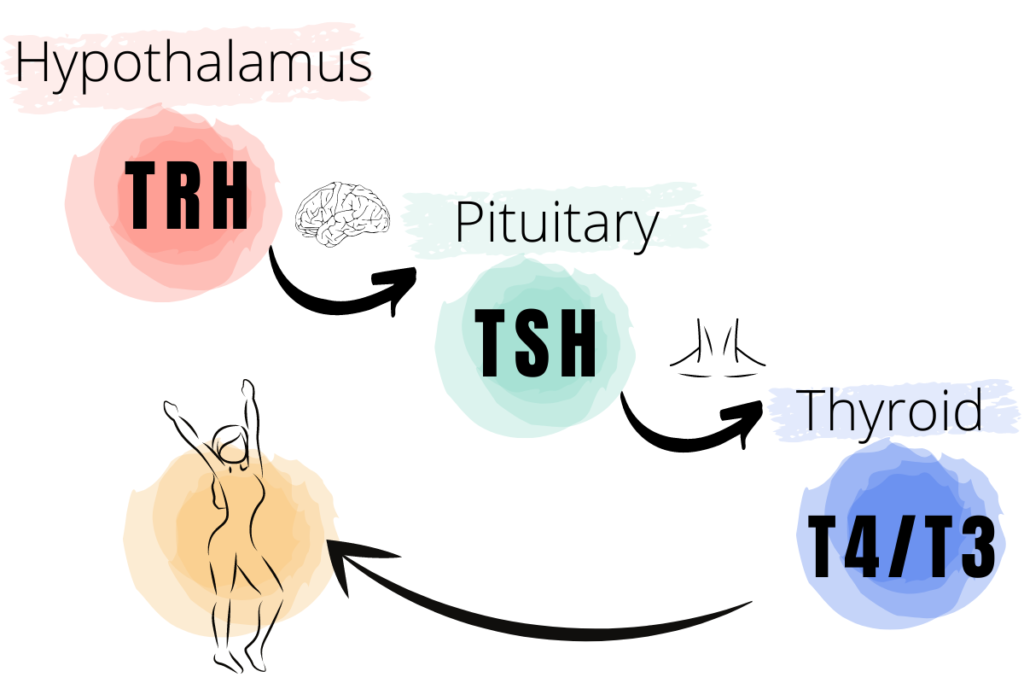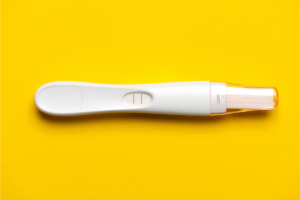What is TSH and Why Does it Matter?

I’m not going to lie, I’m a bit of a hormone nerd. The more I learn about hormones, the more amazed I get. These small molecules circulate throughout your body, sending messages back and forth. They control so many of the processes that keep our bodies healthy.
When people hear the word “hormone,” they typically think of the hormones associated with a woman’s cycle. But there are SO many hormones playing a vital role in the function of your body.
Let’s dive into a hormone called TSH. What is TSH, and why should you care?
Let’s Start with the Basics

Thyroid-Stimulating Hormone (TSH) is a protein made in the pituitary gland and is composed of an alpha and beta subunit. The alpha subunit is the same as other proteins such as hCG, FSH, and LH, while the beta subunit is unique to each protein.
Measuring TSH can tell you a lot about the health of your thyroid gland, pictured in the image above. Hyperthyroidism is a condition that happens when you produce excess thyroid hormones. Hypothyroidism is a condition that happens when you don’t make enough thyroid hormones. Both conditions cause a wide range of symptoms that can dramatically impact your health.
TSH Feedback Loop
TSH acts in a negative feedback loop. Imagine a cascade of signals – a substance (e.g., hormone) is released, which signals another hormone to be released. This cascade continues until your body receives the final hormone that it needs. When enough of the final hormone is in your body, it tells the initial signal that it doesn’t need to keep going. When your body uses up all of that last hormone and needs more, it signals that the initial substance is required, and the cascade repeats.
In terms of the TSH feedback loop, TSH lands somewhere in the middle. Even though TSH isn’t the initial signal or the final hormone in the loop, it is the hormone that is usually measured first to check the health of your thyroid.

- The hypothalamus, located in the brain, releases TRH (Thyroid-Releasing Hormone). This hormone tells the pituitary gland that it’s time to make TSH.
- The pituitary gland, attached to the hypothalamus in the brain, releases TSH (Thyroid-Stimulating Hormone). TSH then tells the thyroid to make T3 and T4.
- The thyroid gland, located in the neck, releases T3 and T4. These hormones circulate throughout your body to stimulate metabolism.
So What?
It is reported that over 12% of the US population will develop a thyroid condition in their lifetime. Up to 10% of women develop thyroid issues postpartum, but is likely significantly underreported because a lot of symptoms overlap with “typical” postpartum symptoms so blood work is not done.
Thyroid issues can cause insomnia, weight gain, weight loss, sensitivity to temperatures, fatigue, and tremors among many other symptoms. Understanding the TSH loop and the impact it has on your body can help you monitor your thyroid health and prevent or fix some of these symptoms.
Have you ever wondered why normal table salt is iodized? Iodine deficiency is a major cause of hypothyroidism because it is needed for T3/T4 hormones. To reduce the occurrence of hypothyroidism, iodine was added to salt because it was an easy way to incorporate it into most people’s diet. Pretty cool, huh?
References
Pirahanchi Y, Toro F, Jialal I. Physiology, Thyroid Stimulating Hormone. [Updated 2021 May 9]. In: StatPearls [Internet]. Treasure Island (FL): StatPearls Publishing; 2022 Jan.
Smith, Ashleigh et al. “Thyroid disorders in pregnancy and postpartum.” Australian prescriber vol. 40,6 (2017): 214-219. doi:10.18773/austprescr.2017.075





